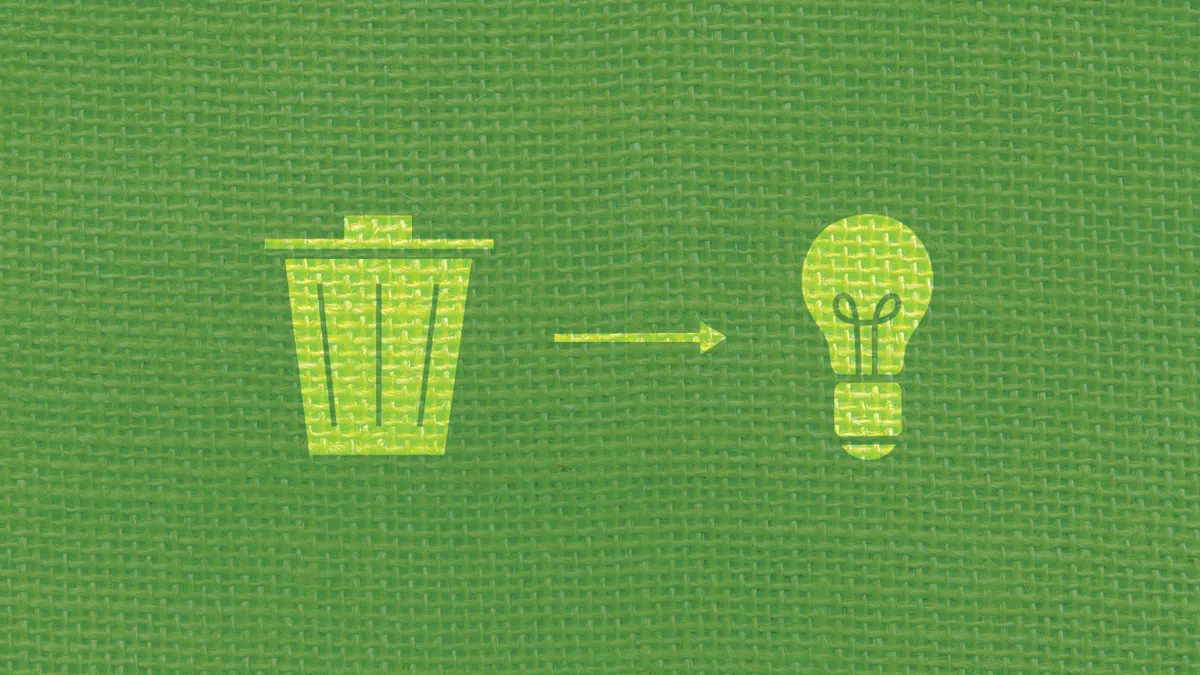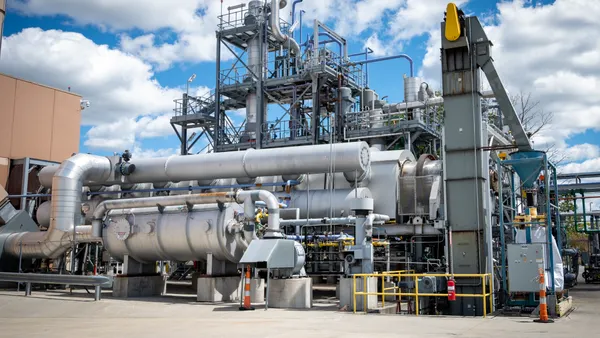Dive Brief:
- Renewable energy development company Brightmark Energy has invested $10 million in plastics-to-fuel (PTF) technology company RES Polyflow. Brightmark committed an additional $47 million to develop the company's first plant, which will be based in Indiana.
- The plant will have the annual capacity to process 100,000 tons of plastic into 18 million gallons of low-sulfur diesel and naptha blend stocks, as well as 5 million gallons of wax.
- Brightmark has stated its intention to invest in other domestic and international plastics processing facilities in the next several years.
Dive Insight:
A number of market changes over the last year have given rise to a different recycling environment, one where business models that weren't previously viewed as viable are now back on the table. PTF models increasingly fit into that category.
A 2011 report by 4R for the American Chemistry Council characterized recycling, and especially plastics recycling, as an evolving field that's being transformed by new technologies. However, it also stated that despite advances in plastic reclamation, a good portion of the plastic stream still can't be recycled "due to contamination, lack of markets or the inability to separate plastics that can make recovery unfeasible." Instead, those materials are sent to landfills or waste-to-energy facilities.
The report identified Europe and Asia — but not the United States — as having establishing PTF facilities; nearly two dozen facilities were making PTF processing equipment, but no commercial-scale systems had been developed in North America. It cited "investor uncertainty regarding the economic viability of these systems" in North America, but noted that "investors abroad are seemingly more confident in this technology" and had been using it for a few years.
Now, seven years later, that hesitation is fading — North America has grown aware of the value of PTF systems, as evidenced by the Brightmark Energy partnership.
In addition, Plastic2Oil is resuming fuel production after shifting its business model away from that sector four years ago. Agilyx, an Oregon company that converted plastics to crude oil for more than a decade, launched a depolymerization plant this year that processes polystyrene into monomer oil. Renewlogy has also begun to gain traction for its own process in Utah. The PTF concept is picking up steam in more established markets as well, with numerous news reports pointing to the intensification of Europe's interest in PTF this year.
PTF increasingly is viewed as a viable way to give hard-to-recycle plastics new life. For example, P2O processes film, Agilyx handles foam and Renewlogy takes a variety of mixed plastics. While various PTF strategies exist, depolymerization is viewed as particularly favorable because it reverts polymers back to nearly virgin monomer quality and is applicable to even highly contaminated materials. Considering the huge amount of plastics that currently are viewed as unrecyclable, industry experts believe PTF presents a multi-million dollar opportunity in the U.S. alone.
China's plastic material import ban has significantly contributed to the shift to PTF, with domestic recyclers seeking new markets for the materials they previously exported. Mounting social pressure to decrease ocean plastic also spurs recyclers to seek innovative new ways to recover plastics and find value in previously disregarded processing techniques. If current conditions hold, it won't be surprising to see more PTF facilities cropping up and expanding in the U.S.











